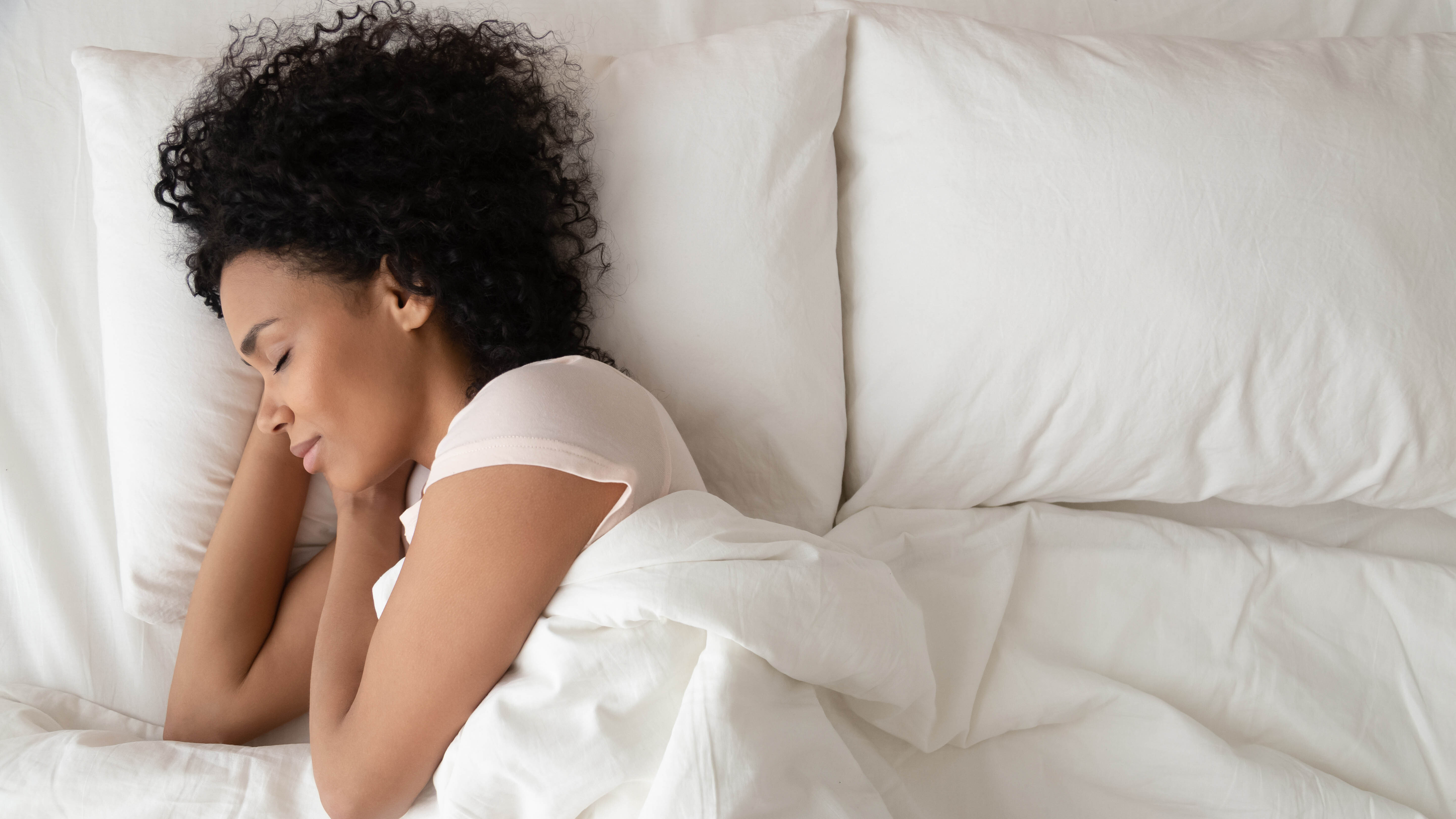What is sleep debt and can it ever really be paid back?
Can you ever pay back your sleep debt? You can, but it’s not that simple — here’s why

The term sleep debt is trending on social media again — but what does it actually mean? Sleep debt, sometimes also referred to as sleep deficit, is when you get less sleep than you need, resulting in racking up "sleep debt."
Unfortunately, paying back sleep debt isn’t as simple as paying off your credit card. Even though you might essentially catch up on any lost hours, the sleep debt is never really paid off. “Sleep is not like the bank, you can’t accumulate a debt and hope to pay it off without consequence,” explains Dr. Matthew Walker, a professor of neuroscience and psychology at the university of California, explains in a viral TikTok video.
When we don’t meet our body’s requirement for adequate sleep, it can lead to both long and short term health consequences, including low mood, diminished cognitive function, weakened immune system and an elevated risk of heart disease. In short, our sleep is incredibly important to our overall health. So let’s take a closer look at what sleep debt is, how to prevent it (investing in the best mattress for you is a great place to start), plus how we can pay it back — if at all.
What is sleep debt?
Sleep debt, also referred to as sleep deficit, describes when you get less sleep than your body requires. And with one in three adults in America admitting to not getting enough sleep, it seems that a lot of us are in the red.
Adults need between seven and nine hours of sleep per night, although exactly how much sleep you need depends on your age. If you require seven hours of sleep but only got five hours last night, you have amassed two hours of sleep debt.
Chronic sleep deficit, or sleep debt, is characterized by a period of three months or longer of not getting adequate sleep. In the short term, this can impact your cognitive function, including your attention, focus, and short term memory, and heighten your risk of heart disease in the long term.
Can sleep debt ever be paid back?
Unfortunately, offsetting years of sleep deficit isn’t quite as simple as having a lay-in on a Sunday. Research has shown that it can take up to four days to recover from one hour of lost sleep, which should give some indication of how hard it is to pay back your sleep debt.
Get instant access to breaking news, the hottest reviews, great deals and helpful tips.
So, if you consistently get adequate sleep but had to get up two hours earlier than normal to catch a flight, it is possible to pay that sleep debt back in the ensuing days. However, studies indicate that months and years of accumulated insufficient sleep can never be paid back.
Sleep debt, also known as sleep deficit, is when you get less sleep than your body requires. If you need eight hours of sleep in order to function optimally but only got seven, you are one hour in sleep debt.
Following a night of inadequate sleep, your brain and body will attempt to recover from the sleep deprivation by falling into a deeper sleep the following night. This is called sleep rebound. But instead of feeling refreshed and well-rested the following morning, this deep sleep will likely leave you feeling groggy and disorientated.
This grogginess you feel following a deep sleep is called sleep inertia, which describes an abrupt disruption to your sleep. This is your body’s way of telling you that it might have caught up on some sleep, but it still needs more. “In other words, you can make up some of that debt but you can never repay all of it,” explains Dr Walker.
How to pay back your sleep debt
Paying back your sleep debt isn’t straightforward. Studies show that reversing months and years of sleep deprivation isn’t possible, but you are able to repay your short term sleep debt. Recouping lost sleep will immediately make you feel better and improve your cognitive function. You can do this by...

- Take a nap: A 20 minute daytime nap can help improve your ability to focus, plus lift your mood. Make sure you set your alarm — sleeping for longer than 20 minutes means you run the risk of incurring sleep inertia, which will leave you feeling groggy and disoriented upon waking.
- Increase your total sleep time by 15 minutes: If you’ve lost an hour of sleep, adding an extra 15 minutes to your evening sleep time means you will have paid back your sleep debt within four days.
- Enjoy sleeping in: Sleeping in on the weekend is one way to make up for lost sleep. However, you won’t want to make a habit of it — establishing a regular sleep schedule will make it easier to avoid falling into sleep debt in the future.
How to prevent going into sleep debt
Paying back your sleep debt isn’t straightforward. Studies show that reversing months and years of sleep deprivation isn’t possible, but you are able to repay your short term sleep debt. Recouping lost sleep will immediately make you feel better and improve your cognitive function. You can do this by:
Establish a sleep schedule
Establishing a consistent sleep schedule essentially trains your body to go to sleep and wake at a particular time. It can be tricky to establish, especially if your current sleep schedule is a little erratic. However, sleeping and waking at the same time every day helps set your circadian rhythm, which is our body's internal clock. When our circadian rhythm is working optimally, falling asleep becomes easier and waking up feeling refreshed becomes a habit.
Get the temperature right
The best temperature for quality sleep is around 65 degrees Fahrenheit (18.3 degrees Celsius). Anything above or below that temperature can make it difficult for you to both fall and maintain sleep. As well as swapping your duvet over to a thicker tog in the winter, check out our best cooling mattresses for the summer to ensure optimal temperature regulation.
Clear the clutter
Having a calm, relaxing space to retreat to is all part of establishing strong sleep hygiene. Clear away any clutter from on and around your bed, and make your sleep space somewhere where you want to be, not somewhere where you are reminded of the things that you didn't get done that day.

Nicola is the Sleep Editor at Tom’s Guide, where she helps steer the mattress and sleep content published on Tom’s Guide, including our Best Mattress for Back Pain buying guide. With a career in journalism spanning the best part of two decades, Nicola brings experience to the team and the knowledge of what makes a great article, whether that’s a how-to mattress cleaning feature, a deep dive into melatonin gummies, or an in-depth mattress review. As a sleep editor, few better understand how important a decent mattress is to the overall quality of our sleep, and precisely how our sleep impacts our physical and mental health. As well as tackling the vast topic of sleep, Nicola joins the raft of expert mattress specialists at Tom’s Guide, who test and compare a wide range of mattresses in order to guide readers towards the very best options on the market.
 Club Benefits
Club Benefits





